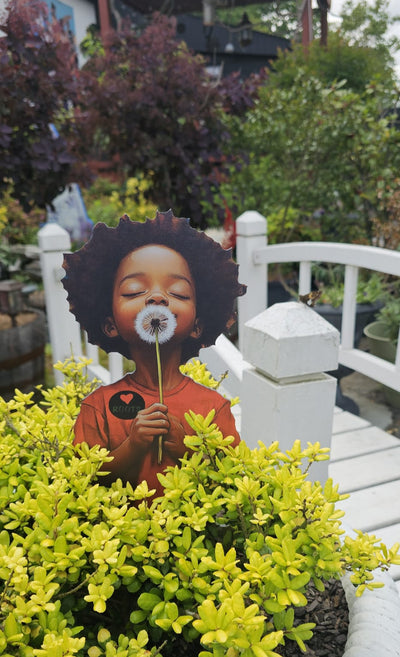BAIA BITS: Ali Akbar
BAIA BITS
“My uncle dressed well,” said enigmatic artist, Ali Akbar, to author and friend, Bill McGowan. “I saw the effect this had on everyone, particularly the ladies. So I went to this men’s clothing shop in the ‘hood and I bought a nice suit. Fitted! Red! That night I hit the clubs in my suit and a nice hat too. Wow! I felt like the MAN! I could feel the effect immediately. It gave me confidence, and I played it for all it was worth!”
Play it, he did. For those like McGowan who knew him, Akbar was a one-of-a-kind, live-life-to-the-fullest painter who wowed at least as many people as he rubbed the wrong way. McGowan’s 2015 book, The Ali Files, captures his friendship with the late Akbar while detailing the latter’s unique existence.
Born Horace Pittman in Rock Hill, South Carolina in 1945, Pittman did a stint in Vietnam and sustained injuries before returning to his hometown, becoming restless and, years later, resurfacing in Knoxville, Tennessee. By the 1980s, he became a regular on the Knoxville music scene, popping up at local jazz and punk rock venues as the oldest and often the only Black attendee. Well known for his smoking, drinking, and womanizing, the outgoing Pittman, between parties, worked alone on his art, adorning canvases with signature vibrant colors similar to the ones he wore in his clothing and scarves.
Everyone knew “Horace.” That’s why it was so stunning when, in the early ’90s, the uninhibited artist suddenly converted to Islam and became Ali Akbar. Upon promoting that Islam prohibited the depiction of human figures, Akbar embraced abstractionism, expressing himself through designs and patterns. His conversion was generally regarded as a means of balancing his extreme personality. But over time, his friends noted that a number of his old traits reemerged.
Still, his art continued. In 1995, Akbar’s painting “Blues Man” became popular as it was reproduced for prints and T-shirts while gracing the cover of jazz album “Wurd on the Skreet” by pianist Donald Brown. Even after his death in 2009, Akbar’s artistic legacy has since been carried forward by McGowan’s book, The Ali Files; by the praise of such prominent African American collectors as Dr. Harmon and Harriet Kelley; by the 2015 public exhibit entitled Who Is This Man?; and by friends like Jack Rentfro, who told the Knoxville History Project the following:
“A few times in this life, you meet people who, by their own brand of benign weirdness, assuage the bad crazy of this world. They take it away and replace it with something good. Sometimes, they pay a heavy price for this compulsion—poverty, isolation, early death. We should appreciate them more while we’re in the same plane of existence. Ali Akbar was one who put his life on the line. For art. One of those whose very existence was a kind of experiment in living art.”
BAIA BITS are produced in part by the generous support of our Patreon members with a special shout out to Zadig & Voltaire.
























